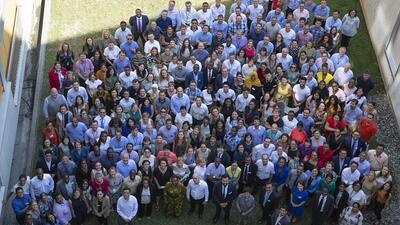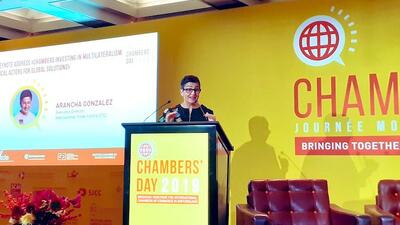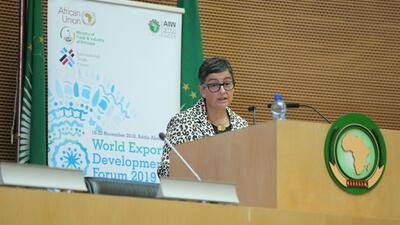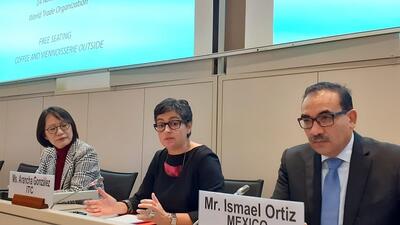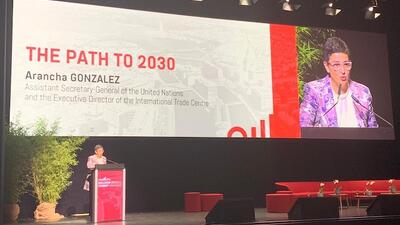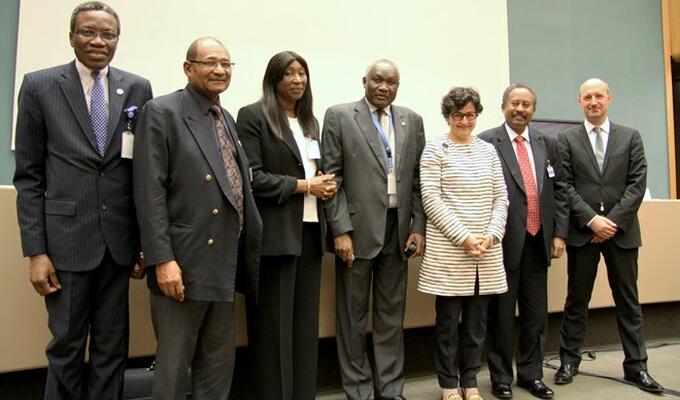
African industrialization fuelled by manufacturing, services, dynamic trading environment (en)
Economic development in Africa depends on more than an increase in manufacturing activity; it also requires development of the services sector, said Executive Director of the International Trade Centre (ITC) Arancha González at a high-level panel of the African Forum for Dialogue held in Geneva on 1 July 2014.
‘It’s not just about manufacturing; it’s about raw materials, energy, distribution, logistics, financial services and tourism,’ said Ms. González in her address to delegates. ‘It’s not about choosing; it’s about how to blend these components in an intelligent manner.’
Manufacturing must increasingly take on aspects of services, she said, adding that services are growing at a faster pace than manufacturing in Africa. Small and medium-sized enterprises (SMEs) and micro, small and medium-sized enterprises (MSMEs) have a significant role in job creation, said Ms. González. She noted that SMEs are the drivers of Africa’s domestic-led economic growth, making up 80% of private enterprises.
In combination with education, solid infrastructure, access to finance and innovative strategies that protect the environment and help businesses adapt to climate change, Ms. González said industrialization can lead to sustainable, inclusive development for exporters, including women and youth.
For there to be sustainable, inclusive economic growth, there needs to be ‘a move from dependence on external resources’ to domestic resources so that countries can become ‘resilient to external shocks’, said Dr. Anthony M. Maruping, Commissioner for Economic Affairs at the African Union Commission, who also spoke on the topic of ‘Industrialization and Inclusive Development in Africa’.
He added that economic growth can be achieved through value addition and diversification of goods and services, which creates employment opportunities.
The sectors that hold the highest potential for job creation are food and beverage, textiles and apparel, which are especially good for ‘late-comers’ to engage in, said Mr. Frank Van Rompaey, the United Nations Industrial Development Organization’s Representative in Ghana. He pointed out that as developing countries become more industrialized, they shift from the low-technology, low-productivity sectors (such as tobacco and textiles) to high-technology, high-productivity sectors (such as electrical machinery and motor vehicles)




